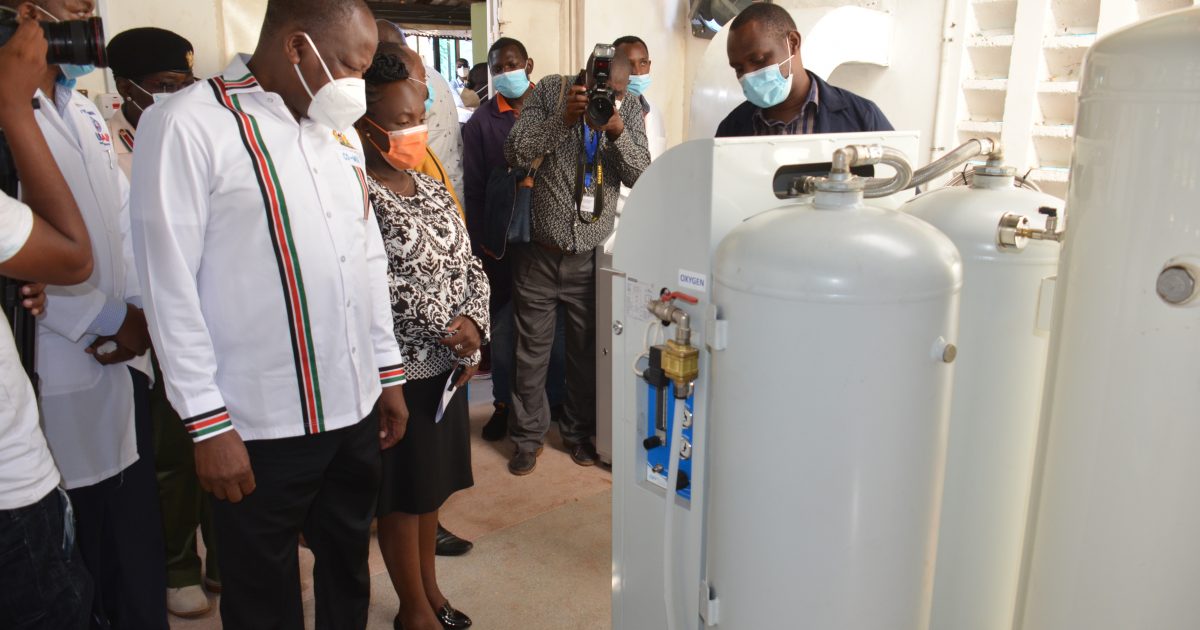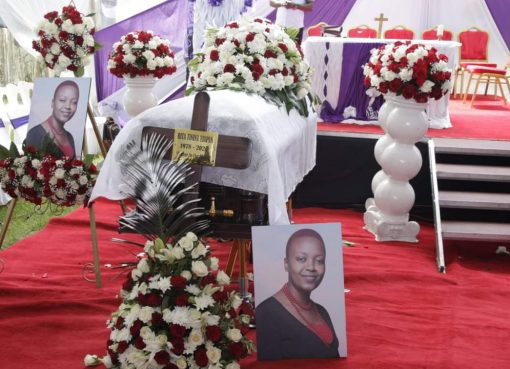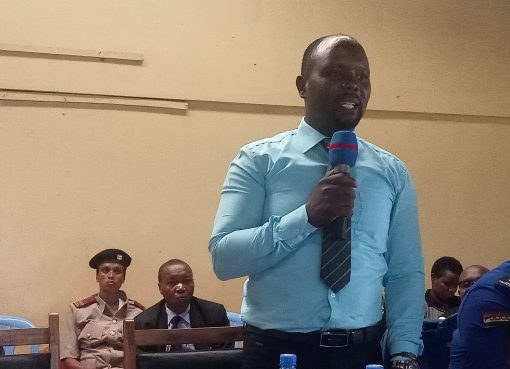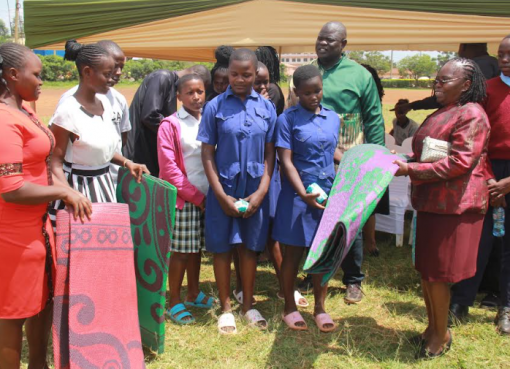The government has suspended all passenger flights to and from India for a period of 14 days.
The banning of the flights is part of an emergency intervention to halt inter-country Covid-19 transmission following the recent deadly surge of the virus in India that has left thousands dead and rendered a once-robust healthcare system on the verge of collapsing.
Cabinet Secretary for Health Mutahi Kagwe said the National Emergency Response Committee (NERC) on Monday passed a resolution banning passenger flights to India for two-weeks.
Speaking at Moi County Referral Hospital in Voi on Wednesday during the national Covid-19 briefing, Kagwe said that the ban, which will take effect after 72-hours, is set to commence on midnight of Saturday 1st May. However, cargo flights will not be affected by this ban but will adhere to all laid down health protocols.

The CS stated that although the government empathized with India’s plight and had pledged to offer assistance to the corona-stricken country, there was a need to take preventive measures to avoid the similar monumental surge of the deadly virus being replicated in the country.
“We truly sympathize with India and have expressed our solidarity with the people in that country. However, as a precautionary step, we have suspended passenger flights to and from India for 14-days starting from midnight of Saturday,” he said.
Following the ban, all passengers arriving from India will have to undergo a mandatory Rapid Antigen Test for the virus at their port of entry. Those found positive will be placed in quarantine at their own cost. Those who test negative will be allowed to go but are supposed to be on 14-day self-quarantine.
The CS said that such measures have been necessitated by the seriousness surge of Covid-19 presented to the government. He was accompanied by Dr Willis Akhwale, Chair for Covid-19 taskforce, Deputy Governor Majala Mlaghui, County Commissioner Rhoda Onyancha and other senior and national government officials. Earlier on, the CS and his team had toured the 160-bed Covid-19 facility and ICU center in Mwatate Sub-county.
Recently, India famed for having one of the best healthcare systems in the world, has been convulsing from an unprecedented surge of Covid-19 cases that have pushed its health facilities to the verge of total collapse.
With over a hundred thousand daily infections and thousands deaths per day, the world is being treated to chilling scenes of people setting up temporary communal pyres to cremate their loved ones.
Kagwe admitted that there was global anxiety over what the devastating surge of corona in India portended to the rest of the world because many countries were relying on getting vaccines from India. Kenya’s AstraZeneca came from India.
The CS noted the country is braced for a possible disruption of AstraZeneca vaccine supply as India was expected to channel all available vaccines towards her vast population. He further stated that it would be unfair to harangue the country for a vaccine when it was in such a crisis.
However, those Kenyans who had received a first dose of AstraZeneca were assured that they would get their second jab as planned.
He revealed that Kenya, under the Covax program, has already requested for alternative vaccines including Johnson &Johnson and Pfizer.
“We have placed an order for the two vaccines and we are expecting them by May,” he said.
Dr Akwale, chair for vaccine task force, said that the issue of mix and match for administration of vaccines would not arise as there were still not enough tests and studies to show if combining of vaccines was more effective or otherwise.
Mix and Match is a term used to explain a situation whereby an individual receives one vaccine for the first dose and a different one for the second one. This scenario has recently arisen after speculations of possible disruption of AstraZeneca supply from India.
“All vaccines work on different platforms. There is insufficient data and studies of efficacy or otherwise when one takes two doses of different vaccines. For one, we are advocating for a uniform vaccination regime,” said Dr Akhwale.
The uniform vaccination means both first and second injections will be from the same company.
Noting that the country was not out of danger, the CS urged the counties to plan based on the worst-case scenario in the future. He added that the government was working on a policy to ensure counties were working on manufacturing their own oxygen for medical use.
He disclosed that the Ministry of Health in collaboration with development partners had identified 86 health facilities in 30 counties that will be supported to produce their oxygen.
USAID has pledged to support five counties into what the ministry hopes will spur the counties into becoming oxygen self-sufficient.
“Oxygen is a key ingredient in treatment of Covid-19. The counties must be self-sufficient and stop relying on the external help for their supplies,” he said.
He disclosed that as part of empowering the health systems, Moi Teaching and Referral Hospital had established the largest oxygen generating plant in East and Central Africa with a production capacity of 2,000 liters per minute. Already, the government has disbursed Sh28.8 billion to counties as monetary support towards establishing a robust healthcare system to fight Covid-19.

The CS hailed the measures put in place by the government to curb the spread of Covid-19. He said steps taken were yielding fruits with data indicating a gradual decline in the number of infections across the country.
He hinted that the downward trajectory was an indicator that the positivity rate was coming down. Such signs heralded the possibility of the country slowly edging towards being opened.
He however cited a worrying trend where the infection trend in diseased zones was falling but infections in other counties were rising. “We don’t want a scenario of locking up counties to reduce infections only to have other counties’ infections go on. Health protocols must be followed in all counties to have a general drop in the infection rates,” he said.
Data on Covid-19 status as at Wednesday showed that 843 people tested positive of Covid-19 from a sample size of 8,498 translating to a positivity rate of 9.8 per cent.
Of the cases, 805 were Kenyans and 29 are foreigners. Total confirmed cases stood at 158, 326 and cumulative tests done so far stand at 1,659,506. At the same time, 23 Covid-19 related deaths were reported.
Countrywide, 1,300 patients are admitted in health facilities while 6,978 patients are in home-based care. A total of 198 patients are in ICU with 35 being on ventilators while 134 are on supplementary oxygen.
By Wagema Mwangi





